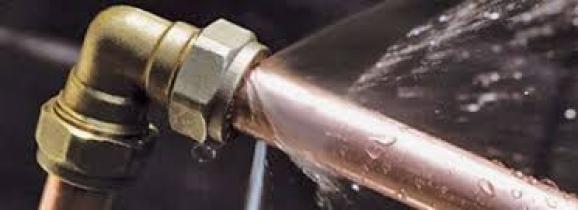Learning About Why Water Leakage Happen Frequently at Home
Learning About Why Water Leakage Happen Frequently at Home
Blog Article
We've stumbled on this great article pertaining to How to detect water leaks in your home directly below on the internet and figured it made sense to share it with you over here.

Leaks not only trigger waste of water however can likewise cause unneeded damages to your house as well as promote unwanted natural development. By comprehending as well as looking for everyday situations that trigger leaks, you can secure your house from future leaks and unneeded damages.
Trespassing origins
The majority of water leaks start outside your house instead of inside it. If you discover an abrupt reduction in water pressure, claim in your faucet, require time to head out as well as examine your backyard. You may see wet spots or sinkholes in your backyard, and that could imply that tree origins are getting into water lines causing water to seep out. You can have your plumber look for intrusion, especially if you have trees or shrubs near your building.
Rusty water systems
As time passes by, your plumbing system ages and deterioration such as rust may begin gnawing the pipes. This could be the cause of staining or warping on your water pipes. This asks for an examination with your plumber quickly. Think about replacing the pipes because they are at a higher danger of corrosion than the newer designs if our plumbing system is old.
Faulty Pipeline Joints
Pipeline joints can wear away over time, resulting in water leaks. If you have noisy pipes that make ticking or banging sounds, especially when the warm water is transformed on, your pipeline joints are probably under a lot of stress.
Instantaneous temperature modifications.
Extreme temperature level modifications in our pipelines can cause them to increase and get unexpectedly. This growth and also tightening might trigger fractures in the pipelines, especially if the temperature are below freezing. If you kept an eye on just how your plumbing functions, it would be best. The visibility of the formerly mentioned conditions regularly shows a high risk.
Poor Water Connectors
At times, a leak can be created by loose tubes and also pipes that provide your appliances. In instance of a water connections leak, you might notice water running directly from the supply line or pools around your home appliances.
Obstructed Drains
Clogged drains may be frustrating as well as inconveniencing, but they can sometimes wind up creating an overflow resulting in burst pipelines. Keep getting rid of any type of materials that might go down your drains that might obstruct them to stay clear of such aggravations.
All the above are sources of leakages yet not all water leakages arise from plumbing leakages; some leaks could originate from roof covering leaks. All leaks ought to be fixed instantly to stay clear of water damages.
Leaks not just trigger waste of water yet can also create unneeded damage to your house and also promote unwanted natural growth. By looking and recognizing for everyday circumstances that create leakages, you can safeguard your house from future leaks as well as unnecessary damage. Today, we will look at 6 leak causes that might be triggering your pipelines to leak.
At times, a leakage can be triggered by loose hose pipes and pipes that supply your appliances. In situation of a water connections leakage, you might discover water running directly from the supply line or pools around your devices.
How To Check For Water Leak In Your Home
How To Check for Leaks
The average household's leaks can account for nearly 10,000 gallons of water wasted every year and ten percent of homes have leaks that waste 90 gallons or more per day. Common types of leaks found in the home are worn toilet flappers, dripping faucets, and other leaking valves. These types of leaks are often easy to fix, requiring only a few tools and hardware that can pay for themselves in water savings. Fixing easily corrected household water leaks can save homeowners about 10 percent on their water bills.
To check for leaks in your home, you first need to determine whether you're wasting water and then identify the source of the leak. Here are some tips for finding leaks:
Take a look at your water usage during a colder month, such as January or February. If a family of four exceeds 12,000 gallons per month, there are serious leaks.
Check your water meter before and after a two-hour period when no water is being used. If the meter changes at all, you probably have a leak.
Identify toilet leaks by placing a drop of food coloring in the toilet tank. If any color shows up in the bowl after 10 minutes, you have a leak. (Be sure to flush immediately after the experiment to avoid staining the tank.)
Examine faucet gaskets and pipe fittings for any water on the outside of the pipe to check for surface leaks.
Undetected water leaks can happen without the home or business owner even realizing. If you suspect a water leak, but not able to find the source. It is time to contact a professional water leak detection service, The Leak Doctor.
How To Find a Water Leak In Your Home
https://www.leakdoctor.com/blog/How-To-Check-For-Water-Leak-In-Your-Home_AE197.html

I ran across that post on Common Water Leaks In House while doing a lookup on the internet. Sharing is caring. Helping people is fun. Thanks so much for your time spent reading it.
Schedule Service Now Report this page